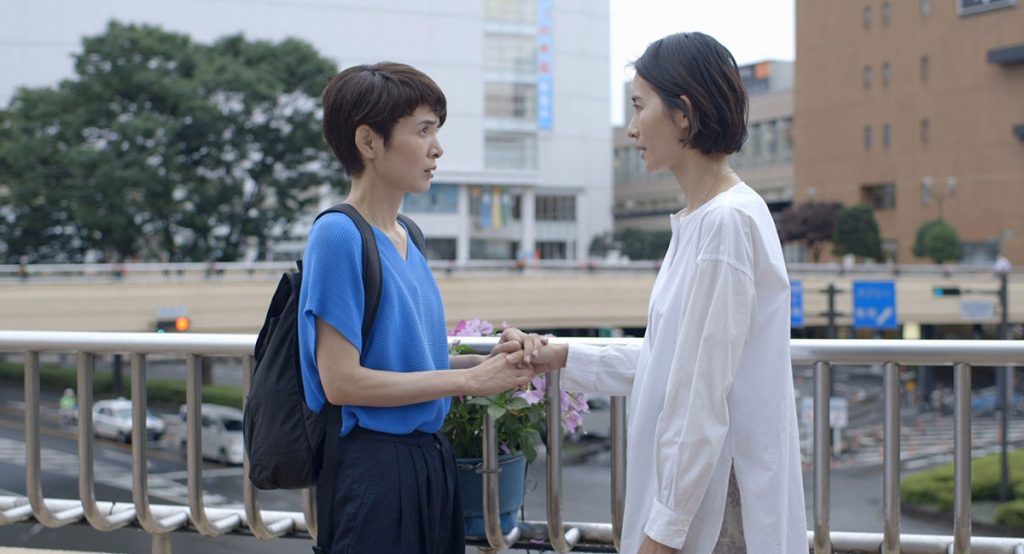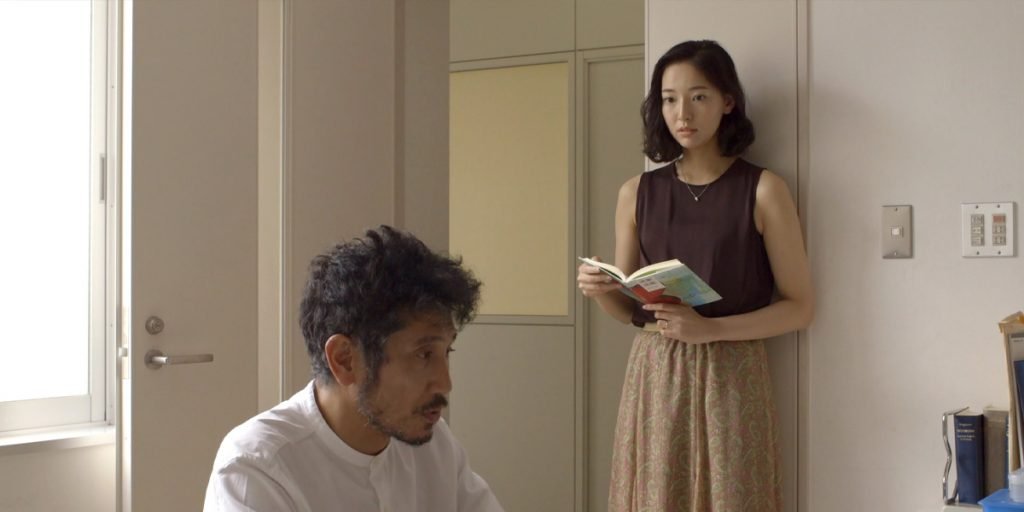Through three distinct but thematically connected stories in Wheel of Fortune and Fantasy, Ryûsuke Hamaguchi paints a vivid portrait of people facing choices and fates.
To create a detailed character with depth and complexity is no mean feat, even over the course of a full feature length runtime, and yet Ryûsuke Hamaguchi (Asako I & II, Drive My Car) manages to achieve this in each of his short stories – which never run over 45 minutes – in Wheel of Fortune and Fantasy. The three short stories touch on themes of seduction, love, missed opportunities, regrets, human connection and communication (or lack thereof) and much, much more, and all of them have grounded and believable characters created by a smart screenplay and brought to life by committed performances. True to much of everyday life, Wheel of Fortune and Fantasy doesn’t ignite into something full-blown or fiercely dramatic, instead favouring a charming but affecting direction, complete with a soft piano score and understated direction.
The three short stories of Wheel of Fortune and Fantasy, whilst frequently connected by their themes, do not overlap in terms of their narratives. The first – titled “Magic (or Something Less Assuring)” – tells the story of a love triangle, one that only two of the three people involved are aware of and only becomes apparent to the audience after a good ten minutes, following a brilliantly written opening taxi ride scene. Hyunri’s (Wife of a Spy) Tsugumi and Kotone Furukawa’s (On the Street) Meiko discuss a recent meeting with a man that the former has just had, with the latter then realising that the man in question is her ex-boyfriend. What ensues is a complex but never dangerously dramatic love triangle: Hamaguchi hints at a histrionic direction at one point but quickly shows it to be, in fact, fantasy, bringing the audience back to reality. The aching feeling of regret is apparent here and then again in the second and third stories of Wheel of Fortune and Fantasy, marking itself out as perhaps the most common theme connecting these three tales, although the characters in each react to the realisation of regret in very different ways.
The second story – titled “Door Wide Open” – is perhaps the most intriguing and tense scenario, with its focus being on mature university student Nao, played by Katsuki Mori (Killing for the Prosecution), and her attempt to seduce a professor, Sasaki, played by Shouma Kai (Signal 100). Where many directors and screenwriters might allow this sort of scene to devolve into an unsavoury and unnecessary sex scene, Hamaguchi resists the urge, or rather, the seduction. Instead, he crafts something quite beautiful and heartfelt out of proceedings, before delivering a sucker punch of an ending, showing how a small mistake can drastically alter multiple lives. But even in this moment, things are not overly dramatized; the best strength of Wheel of Fortune and Fantasy is undoubtedly its quiet persistence to feel real and to stay grounded.

Hamaguchi, here as both the director and writer, keeps things understated but effective throughout Wheel of Fortune and Fantasy. As complex and human as the stories are, they never reach for something overly philosophical or untenable for the audience, nor do they preach life lessons. DOP Yukiko Iioka (Listen to Light) and Hamaguchi use subtle camerawork to enhance specific moments. Often the camera will remain stationary for extended periods but, when necessary, it will move: in “Door Wide Open”, a sudden switch from an angle is capturing both characters sitting together conversing to separate medium close-ups of their faces emphasises a change in dynamic in the scene, whilst also highlighting that both characters are now opening up more in a personal way. Little moments like this throughout Wheel of Fortune and Fantasy keep things consistently engaging and more than anything genuine.
Even in the third and final story of Wheel of Fortune and Fantasy, “Once Again”, which posits a scenario where a computer virus in 2019 shut down all forms of electronic communication (and playfully, VOD services), Hamaguchi does not go full-blown dystopia. Instead, he uses the lack of electronics to focus on people, meeting face to face as well as communicating via telegrams, before telling the story of a chance encounter which, stemming from mistaken identity, morphs into perhaps the most beautiful and heartfelt of the three stories. Aoba Kawai (Hand of God) and Fusako Urabe (Voices in the Wind), playing Nana and Moka respectively, give two gentle but very raw performances and ensure this story and the film itself ends with an emotional release.
Wheel of Fortune and Fantasy might be one of the more understated films of the year but it’s one of the most charming. Hamaguchi, along with the quietly powerful Drive My Car (2021), has further enhanced his reputation for crafting severely human stories, ones which recognise the flaws but also the strengths of people. Just like life itself, Wheel of Fortune and Fantasy has pain and love, connections (both lost and current) and fate, all intertwined in a complexity that will never really be fully solved. And even with its understated, gentle nature, there is a raw quality to Wheel of Fortune and Fantasy which will effortlessly outlast other louder, showier films this year.
Wheel of Fortune and Fantasy is now available to watch on digital and on demand.

